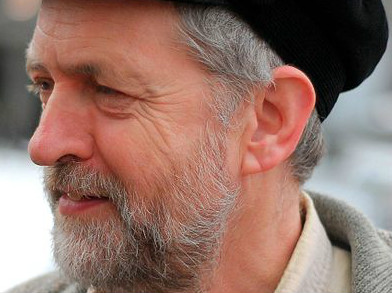Does Jeremy Corbyn want to nationalise the pharma industry?

The pharmaceutical industry has been drawn into the bitter row within the Labour party, after leadership challenger Owen Smith's previous roles in the UK pharma industry were used against him.
Smith has been the MP for Pontypridd, Wales since 2010, but before that he worked as a BBC journalist and then in senior government affairs roles at Pfizer and Amgen.
He is challenging current Labour leader Jeremy Corbyn to a leadership contest after the overwhelming majority of the party's MPs passed a vote of no confidence against him.
Corbyn ally and shadow health secretary Diane Abbott went on to the Radio 4 Today programme to comment on Smith's challenge, claiming that voters would find the link between politics and lobbying “distasteful”.
She said: “I don’t believe that someone whose history is being a special adviser and a pharmaceutical company lobbyist is going to enthuse the (voter) base.”
It was also alleged that Smith had advocated privatisation of the NHS whilst at Pfizer, having gone on record in 2005 to say that giving patients more choice in the hospital they were treated was a good thing (link to King's Fund report in which Smith is quoted here).
Commenting later in the day at a press conference to promote his leadership, Corbyn added: “I hope Owen will fully agree with me that our NHS should be free at the point of use, should be run by publicly employed workers working for the NHS not for private contractors, and medical research shouldn’t be farmed out to big pharmaceutical companies like Pfizer and others but should be funded through the Medical Research Council.”
The comments sparked an immediate reaction, with Newsnight policy editor Chris Cook asking in a tweet whether Corbyn wants to nationalise the pharma industry:
https://twitter.com/xtophercook/status/756091586023481344
The UK's pharma association the ABPI responded to Corbyn's remarks in a statement, restating the industry's role in developing new and more effective medicines.
It pointed out that pharma invests around £4.1 billion annually in R&D investment in the UK, while the MRC contributes £770 million, and research charities around £1.3 billion.
The ABPI said: “Clearly the taxpayer could not replace the world-wide investment made by industry in researching new medicines. Collaboration between industry researchers, academics and clinicians in the development of medicines for patient benefit is hugely important.
While the tweet from Newsnight's Chris Cook was tongue-in-cheek, Corbyn has his political roots in the left-wing of the Labour party, and the anti-pharma sentiment is perhaps not surprising. However Corbyn hasn't laid out any policies in regard to the pharma industry, and the comments reflect more on Corbyn's desire to see off his challenger.
Opinion polls show Corbyn is hugely unpopular with the general electorate, but has however built up a fervent group of supporters who want to break away from the established 'middle ground' politics. Labour party members can vote for either Smith or Corbyn in the leadership contest in September, with bookmakers currently predicting a victory for Corbyn, thanks to a surge of new supporters joining the party in recent months.












